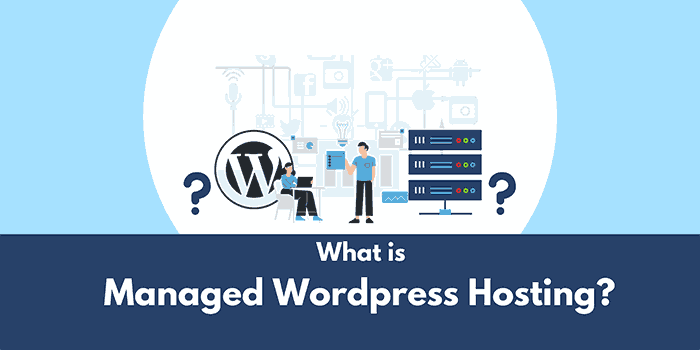What is Shared Hosting and Its Benefits? Essential Before Purchase – Pros and Cons of Shared Hosting 2025
Introduction
Shared web hosting offers a cheaper solution for low-traffic sites, allowing you to get started at a fraction of the cost of dedicated servers. If you are looking to start a website, but want to save money, then shared web hosting might just be what you need. They offer a wide variety of options and packages, ranging from simple plans that are suitable for personal blogs or sites with only a handful of pages up to complex enterprise solutions that include e-commerce functionality.
What exactly does “shared web hosting” mean? This term might seem confusing at first, but we hope after reading this article, it shouldn’t be anymore.

What is shared hosting? How shared hosting works?
Shared Web Hosting simply refers to using a single hardware server or cluster of servers to host multiple websites.
The main difference between shared web hosting and dedicated/virtual hosting is that with shared hosting, multiple sites share the same resources.
Shared web hosting allows multiple domains to share the same resources, including memory, processor power, storage capacity, and bandwidth.
The main advantage of shared web hosting is that the cost per site goes down, compared to buying separate hosting plans for each business.
Websites running on shared servers are stored on a separate partition of the storage space and they can be reached by their own domain names.
As a result, they can offer lower costs compared to other types of hosting such as dedicated servers or virtual private servers.
Typically, shared web hosts come with a range of disk space from 1GB to unlimited disk space and some amount of traffic depends on your hosting provider.
What are shared hosting pros and cons?
Pros and Cons of shared hosting to consider.
Shared hosting is very affordable and convenient because it allows individuals to create a website without having to spend a lot. In addition, they don’t usually require technical expertise to install WordPress or other CMS platforms. On top of that, you can also add additional domains and subdomains at no extra cost with some providers.
Benefits of Shared Hosting (Pros).
Downside of Shared hosting (Cons):
However, you should be aware of some downsides of using shared hosting.
What is a shared hosting provider? Who are they?
Shared web hosting accounts are offered by various third-party(Web hosting) companies. These firms host multiple websites on their servers, allowing them to share costs.
Shared hosting providers offer web space at reduced prices. They split their resources among multiple customers, who pay monthly fees in exchange for access to those resources.
Shared hosting services are very inexpensive, and they provide enough bandwidth to let you host several websites.
With high demand comes high competition. While some hosters offer unlimited disk space, unlimited traffic, or even free plans, they also charge a fee per gigabyte or GB of data transferred.
As a result, you get cheap Web hosting without having to invest much time or energy into managing your server setup and maintenance.
They offer a wide variety of options and packages, ranging from simple plans that are suitable for personal blogs or sites with only a handful of pages up to complex enterprise solutions that include e-commerce functionality
How to Optimize Shared Hosting for More Traffic?
If you’re on shared hosting but want to handle more visitors, consider these strategies:
Use a CDN: A Content Delivery Network (CDN) helps distribute static files, reducing server load and improving speed.
Implement Caching: Page and database caching reduce the number of requests to your server, improving performance.
Optimize Your Website: Minimize heavy scripts, unnecessary database calls, and large media files to improve efficiency.
What should you consider before purchasing shared hosting?
8 points to consider before you buy your shared hosting.
There are many good hosts out there but not everyone can offer what you truly want for your site. here we lists some points to consider before you choose your shared hosting provider.
1. Is their uptime more than 99.9%?
2. If the hosting provider offers a free SSL certificate and CDN
3. Server Performance and resources as well as are they offering unlimited SSD storage with unlimited bandwidth.
4. Provides free virus scanning, data backup, and recovery facilities.
5. Availablity in website creation tool and migration.
6. For improved performance, having numerous server locations
is a good idea.
7. What kind of customer technical support are you getting from them?
8. Do you have a Money-Back Guarantee?
Is shared hosting consistently slow in performance?
Shared hosting is a type of hosting service in which multiple websites are hosted on the same physical server, with each website sharing the server’s resources. While shared hosting is generally less expensive than other types of hosting, such as VPS or dedicated hosting, it can sometimes be slower in terms of performance.
There are a few reasons why shared hosting may be slower in terms of performance compared to other types of hosting:
Limited resources:
Because shared hosting involves sharing server resources with multiple websites, there may be limits on the amount of resources that are available to individual websites. This can impact the performance of websites hosted on shared servers, especially if they receive a lot of traffic or require a large amount of resources.
Overcrowding:
If a shared server becomes overcrowded with too many websites, it can result in slower performance for all of the websites hosted on the server.
Performance issues on other websites:
If other websites on the shared server are experiencing performance issues or are using a large amount of resources, it can impact the performance of other websites on the server.
Server location:
The location of the shared server can impact the performance of websites hosted on it. If the server is located far from the majority of the website’s users, it can result in slower loading times for the website.
Content management system (CMS) and website code:
The CMS and website code used by a website can also impact its performance on a shared hosting server. Websites that use inefficient code or a resource-intensive CMS may perform slower on a shared server compared to websites that are optimized for performance.
Caching and optimization: Some shared hosting providers offer caching and optimization features to improve the performance of websites hosted on their servers. These features can help to reduce the load on the server and improve the overall performance of the websites.
That being said, shared hosting is not always slow in terms of performance. The performance of a shared hosting server can depend on a variety of factors, including the number and type of websites hosted on the server, the resources allocated to each website, and the overall quality of the hosting provider. It is important to choose a reputable hosting provider and a shared hosting plan that meets your specific needs and requirements.
In 2025, who are some of the best providers for Shared Web Hosting?
Choosing a web host can be overwhelming because there are literally hundreds of companies offering them. The below-mentioned Lists are a comprehensive overview of the top web hosts available today. It is listed based on price, features, customer service, and performance.
Bluehost
- Officially Recommended by WordPress.org since 2005
- Free Domain for 1st year
- Free SSL certificate
- 99.984% uptime
- 200+ Global edge servers.
- Google Ads match credit up to $150 (For-U.S Only)
- FREE CDN Cloudflare installation (makes your site load faster)
- Free drag-and-drop Website Builder
- Free Site Migration for 1 wordpress website.
- Free domain-specific email addresses
- 24/7 support
- 30 Days Money Back Guarantee
Hostinger
- Free Domain registration for Premium and Business Plan.
- Free SSL certificate
- 99.955% uptime Guarantee
- 596 ms response time based on Hrank.
- Weekly Backups
- Easy 1-click installer
- SSH Access for Premium and Business Plan
- Free Website Migration
- hPanel is localized for 17 languages
- 24/7/365 support
- 30 Days Money Back Guarantee
Namecheap
- Free CDN(Supersonic) with Basic OS Protection.
- Domain Name and Privacy Protection
- 99.966% uptime
- 534 ms response time based on Hrank
- Unmetered Bandwith
- Free Domain registration
- Free SSL certificate
- Free Website Builder for all plans
- Easy 1-click installation
- Free Website migration within 24 hours.
- Automated Backup tools
- WordPress and CPanel Access
- 24/7/365 support
- 30 Days Money Back Guarantee
Hostgator
- Currently Hosted more than 2million websites
- 99.945% uptime Guarantee
- Unmetered Bandwith
- Free Domain registration
- Free SSL certificate
- Free Hostgator Website Builder
- Google Ads match credit up to $150 (For-U.S. and Canada Only)
- $100 Microsoft Advertising credit
- Free Dedicated IP for Business Plan.
- Easy 1-click installation
- Free Website and Domain transfers.
- Automated Backup tools
- CPanel Access
- 24/7/365 support
- 45 Days Money Back Guarantee
Dreamhost
- Unmetered Traffic
- Unlimited Bandwith and Storage
- Free Domain registration
- Free CDN with Basic OS Protection.
- Domain Name and Privacy Protection
- 99.922% uptime
- 575 ms Response time based on Hrank reports
- Free SSL certificate
- FREE Privacy Protection
- Free Website Builder for all plans
- Easy 1-click installation
- Free wordpress Website migration
- Automated Backup tools
- WordPress and CPanel Access
- 24/7/365 support
- 30 Days Money Back Guarantee
Conclusion:
Shared hosting is the best option for newcomers.
While shared hosting isn’t suitable for everybody, it’s perfect if you’re seeking affordable options for starting your own blog or running a small business website.
Shared hosting is ideal if you want to try something out before committing to a full-fledged website. This way, you can start small and build up your online business slowly.
Shared hosting for small businesses is great for companies that aren’t making much money yet (or even losing money) but are still looking to build a name for themselves. However, if your company is already doing well, I suggest you host yourself or look into VPS or Dedicated Servers.
Thank you for reading, and I hope you enjoyed it!











